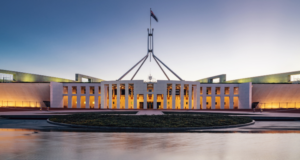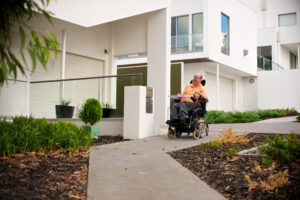In this week’s federal budget, Albanese Government has affirmed its commitment to improving the National Disability Insurance Scheme’s (NDIS) sustainability for future generations.
Budget figure show that projected spending on the NDIS has blown out by $13.1 billion over the past year, with the scheme now the fastest-growing area of government expenditure.
Treasury has cautioned the costs will increase by $17.2 billion over the next four years without better decision-making.
Reforming the agency that delivers the scheme and reducing NDIS fraud are critical elements of the 2023-34 budget strategy to create more opportunities for Australians and improve government services.
Firstly, this budget commits $910 million over four years to improve the NDIS and support and safeguard people with a disability and the scheme.
This includes $732.9 million to improve the effectiveness and sustainability of the NDIS and which will uplift capability, capacity and systems to support participants better:
- Capability: $429.5 million investment in the NDIA’s workforce capability and systems to improve consistency and equity in decision-making for access and planning decisions for NDIS participants
- Better planning: $73.4 million to support participants in managing their plan within budget, including assistance from the NDIA during the year and holding plan managers, support coordinators and providers to account.
- Flexibility: $63.8 million to take a lifetime approach to ensure plans are more transparent and flexible for life events.
- Independent living: $56.4 million to strengthen supported independent living decisions, including introducing a home and living panel to improve consistency across decisions and updated guidelines for planners.
- Evidence-based supports: $29.3 million to support the quality and effectiveness of services provided to participants by improving providing oversight and increasing evidence-based supports
- Blended payment trial: $24.6 million to work with participants and providers to trial blended payment models to increase incentives for providers to innovate service delivery and improve outcomes.
- First Nations and remote communities: $7.6 million to pilot approaches to partner with communities to improve access to support in remote and First Nations communities.
- Fraud: $48.3 million to crack down on fraud and non-compliant payments in the scheme and to develop a business case for new IT platforms and systems to detect and prevent fraud and non-compliant payments.
Additionally, National Cabinet has committed to an NDIS Financial Sustainability Framework and to invest in initiatives to improve the NDIS planning process, making the scheme easier to engage with overall.
The scheme will remain demand-driven. However, the framework will provide an annual growth target of total NDIS costs of no more than eight per cent by 1 July 2026, with further growth moderation as the scheme matures.
The budget also includes other measures to support and safeguard people with a disability and the scheme:
- Watchdog: $142.6 million to support the NDIS Quality and Safeguards Commission to do its job of keeping NDIS participants safe
- Workforce: $14.1 million to deliver a COVID-19 Leave Grant to help stop the spread of COVID-19 to vulnerable Australians and support disability workers
- Policy funding: $13 million investment in the Department of Social Services to strengthen the government’s oversight of the NDIS and get it back on track
- Younger People in Residential Aged Care: $7.3 million to further reduce the number of people under the age of 65 living in residential aged care
In response to the budget, the peak body for disability service providers, National Disability Services (NDS), has called for a vibrant disability sector to be maintained as part of the 2023-24 federal budget measures.
“Setting an annual growth target, which doesn’t change the demand-driven nature of the Scheme, cut participant supports, or impact access to quality and safe services, makes good business sense,” NDS CEO Laurie Leigh said.
“Scheme growth needs to be seen in the context of the economic contribution that the NDIS makes to the Australian community and the overall economy,” Laurie Leigh said.
“It’s important to get this right for the scheme to deliver on what it was originally intended to do,” Laurie Leigh said.
“Ultimately, the sustainability of the NDIS is reliant on a scheme that supports good outcomes for people with disability, underpinned by a sustainable disability workforce,” Laurie Leigh said.
The government has said it will work with disability communities, states, and territories to implement these initiatives and the new framework.
As part of this, Lifely will look for opportunities to advocate for NDIS participants and families living in regional and rural Australia, participate in co-design consultations and provide feedback to support improvements to the scheme now and into the future.
More information about the federal budget is available on the government’s dedicated budget website.




